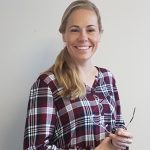

Traffic & transportation engineers have a challenge to correct the unsafe driving practices in South Africa that have led to an extremely high road mortality rate. Designing safer roads will therefore rely heavily on the ability to break traditional engineering boundaries.
Many lessons and experiences can be gleaned and adapted from developed countries, such as the United Kingdom, United States and Germany, which are among the world leaders in the design of safer road infrastructure.
Importantly, due attention is given to pedestrians, the most vulnerable of road users, in the early design phases of their road-transportation networks.
This is an area that requires significant improvement in South Africa, considering that three children under the age of 15 die every day on our roads.
Iceland, for example, has started testing a new pedestrian crossing that appears to be three dimensional and forces drivers to deaccelerate once they see the seemingly floating “zebra stripes”, while this fun approach ensures that children use it to cross busy roads.
Professionals and activists from the United Nations Program for Human Settlements and Architects Without Borders also painted the first 3D zebra crossing in Mozambique on Maputo’s Praça dos Trabalhadores, and South African roads authorities have also expressed a keen interest in the method.
Meanwhile, South Africa’s international engineering counterparts are also making major strides in the use of new materials to manufacture road signage that collapse on impact and in the design of guardrail end treatments that provide effective deflection and improved absorption traits.
The International Road Federation (IRF) and its local partner, the South African Road Federation (SARF), have played a leading role in helping to drive change in the local traffic and transportation engineering profession.
As a member of the SARF council, I am constantly being challenged to think out of the box to find workable solutions.
In many instances, these will transcend only engineering to incorporate other disciplines to develop a holistic solution that starts by promoting a culture of safety early on at school level.
While reducing many fatalities and injuries in the short term, the longer-term benefits of these targeted-educational programmes will become apparent once these learners reach a driving age.
This approach will help correct current unsafe driving practices that have also contributed towards the many deaths on South Africa’s roads every year, especially during the holiday periods.
A step in the right direction is the continuing-professional development programmes that are being offered by the IRF that are helping engineers challenge what has long been considered to be the norm.
For example, the IRF’s Road Safety Audit Team Leaders are constantly thinking beyond guidelines to design and develop safer road infrastructure.
I recently became the second registered IRF Road Safety Audit Team Leader on the continent and look forward to researching and deploying many of these international best practices in a local context.
In order to qualify as an IRF Road Safety Audit Team Leader, candidates have to complete an online examination before submitting a comprehensive presentation of their professional experience, including details of their projects and four letters of recommendation from clients.
In so doing, they are able to demonstrate a sound understanding of safe systems concepts, such as speed and the management thereof, as well as knowledge on vehicle restraint systems, an area which also requires significant attention in the country.
Wink will accept her certificate at the 2018 SARF/IRF/ Permanent International Association of Road Congresses Regional Conference for Africa, which will be held at the Durban International Convention Centre in October.
She graduated with an MSc in Civil & Transportation Engineering at Leibniz University, Hannover, Germany, in 2003.
Wink immigrated to South Africa that year to gain experience working in a sub-Saharan African environment before joining JG Afrika in 2012 as a Traffic and Transportation engineer and now leads the firm’s Transport & Traffic Engineering division in Cape Town.
She has been involved in numerous audits over the years and remains extremely passionate about creating safer roads, especially for South Africa’s youth.
